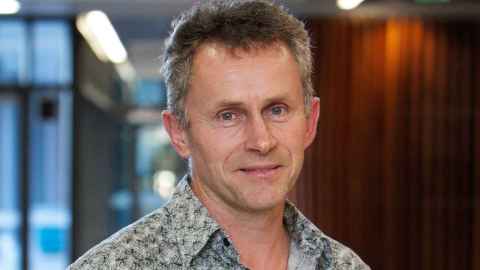Call for ban on insurers accessing genetic test results
11 March 2022
A large group of patient advocates has banded together to call for a ban on insurers accessing Kiwis’ genetic test results.
A group of patient advocates is calling for a ban on insurers accessing Kiwis’ genetic testing results, such as for the BRCA cancer gene made famous by celebrity Angeline Jolie.
“The risk is insurers using people’s genetic information from genetic testing to reduce their cover or increase their premiums,” says Professor Andrew Shelling, Acting Director of the University of Auckland’s Centre for Cancer Research Te Pokapū Rangahau Mate Pukupuku.
“For instance, people are getting tested for the BRCA cancer gene and taking preventative steps such as having her breast and ovaries removed before cancer develops, as Angelina Jolie did, to prevent disease and early death.
Insurers are likely to regard the presence of that gene mutation as a pre-existing condition, meaning any treatments won’t be covered,” Shelling says.

Shelling has authored an opinion piece in the New Zealand Medical Journal (11 March) on behalf of the group of advocates, including clinicians, academics, scientists, lawyers, and representatives from Māori, Pacifica, medical charities and patient groups.
“Insurance companies currently ask about family history, but to have a genetic test and to have that added into a policy will put, according to one US survey, up to 30 percent of people off having a genetic test at all,” he says.
“For people with a family history of cancer and other genetically determined disease, including things like cardiac or neurological conditions, having a genetic test can save their lives.”
Shelling cites a ban in Canada, and a partial ban in Australia, arguing New Zealand is lagging behind countries with comparable insurance regimes.
Genetic tests have evolved to test for more than one gene, plus other markers, and are now more commonly referred to as “genomic tests”. They are used for precision medicine, identifying treatments that are most likely to be effective.
In addition, the Centre for Cancer Research supports clinical trials that may help patients access innovative treatments, Shelling says.
Another example of a genetic disease where genetic testing has been valuable is long QT syndrome, an inherited cardiac disorder. “What we have seen is that otherwise normal children have been running around involved in normal activities and then unexpectedly die from a cardiac event. This can be devastating for families, but now they have a simple genetic test to look at risk for the rest of the family, and if positive for a gene mutation they can have a simple treatment, such as beta blockers, to avoid this outcome. To think that a family might reconsider getting tested because of insurance concerns seems like a terrible situation to be in.”
Cancer inequitably impacts Māori disproportionately, who are already understandably nervous about accessing Western healthcare and interventions, so this potentially adds another layer of discrimination, says Shelling.
Shelling says the issue hasn’t previously been publicised as doctors and scientists in New Zealand as they were not aware of the difference between New Zealand and the rest of the world. A year ago, Jane Tiller, an Australian academic working in this area called Shelling and raised his awareness of it.
He contacted colleagues and within weeks had gathered the group of 50 clinicians, academics, scientists, lawyers, and representatives from Māori, Pacific, medical charities and patient groups who were keen to support a call for a ban on insurers’ use of genetic testing results.
They have formed a group, called Against Genetic Discrimination Aotearoa, or AGenDA, which has endorsed the NZMJ editorial.
Professor Andrew Shelling is Associate Dean (Research) in the University of Auckland’s Faculty of Medical and Health Sciences and an acting director of the University’s recently formed Centre for Cancer Research Te Pokapū Rangahau Mate Pukupuku.
Media enquiries
Jodi Yeats media adviser
M: 027 202 6372
E: jodi.yeats@auckland.ac.nz